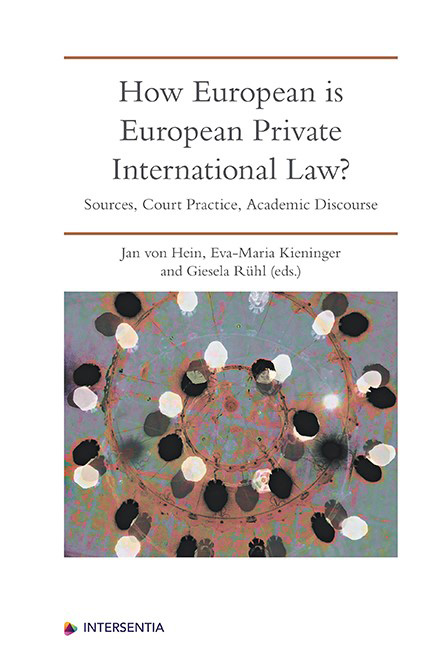The Application of European Private International Law by National Judges: Making the Job Easier
Published online by Cambridge University Press: 22 December 2020
Summary
LACK OF TRAINING AND TEXTBOOKS
PRIVATE INTERNATIONAL LAW AT UNIVERSITIES
Teachers of Private International Law will know that many students and practitioners, including judges, find the subject exceedingly difficult and consider it best avoided. Students cannot, to the extent that they study law at a university where the subject is mandatory, escape Private International Law, but judges may try their best to do so, often aided by the parties’ legal counsel. In practice, many cases with a clear international element are litigated as if they were entirely domestic. In many ways this is understandable – adding a Private International Law dimension to a case will almost invariably make it more complicated and thus more time-consuming and expensive to litigate.
What is more, Private International Law is, in terms of the subject-matter that it covers, a large subject that spans over the entire area of Private Law including civil procedure. At many universities it is not a mandatory subject and even where it is mandatory, it is often a course given relatively little space. In some universities it is not taught at all. For example, at Stockholm University, Private International Law is mandatory and has recently been upgraded from 4.5 ECTS to 6 ECTS, but even so one cannot but note that civil law is 60 ECTS and procedural law (admittedly including criminal procedure) is 18 ECTS. The result is that, during the four weeks of the Private International Law course, students learn only a skeleton version of the subject. However, at least at this university the subject is mandatory. As Thomas Kadner Graziano shows in Chapter 15 this is far from the norm.
LACK OF TEXTBOOKS
One can safely assume that a large majority of national judges have either not studied Private International Law at all, or only to a limited extent. No wonder then that the subject is perceived to be difficult and best avoided. However, even after years of legal training there will always be areas of the law that are new to a judge and the only thing to do in such a situation is to hit the books.
However, in some jurisdictions there is a lack of suitable legal textbooks. Some small jurisdictions lack even an up-to-date general textbook and even in medium-sized jurisdictions there will be a shortage of comprehensive textbooks on specific areas.
- Type
- Chapter
- Information
- How European is European Private International LawSources, Court Practice, Academic Discourse, pp. 205 - 214Publisher: IntersentiaPrint publication year: 2019



